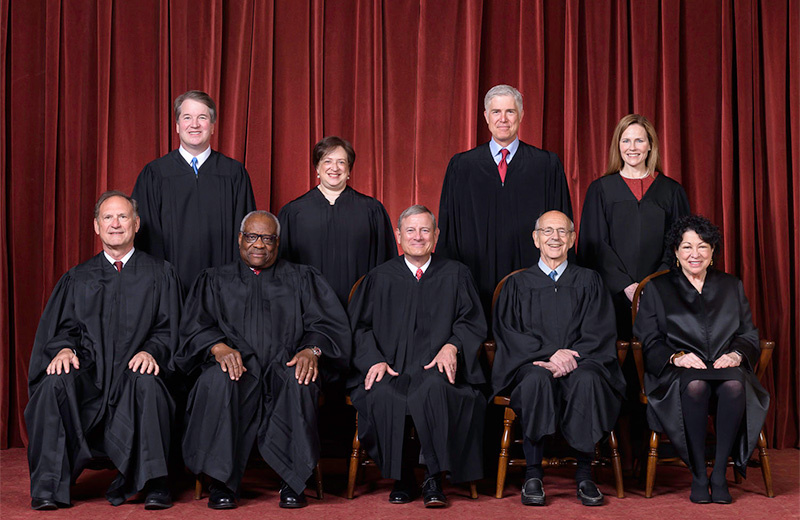Politics
NEW: Supreme Court Hands Down Another HISTORIC Ruling On Religious Liberty

It has been a historic day for the Supreme Court as their ruling that prohibited universities from using affirmative action in their application process is followed up by a similarly significant decision by the court regarding religious liberties. The case itself is called Groff v. DeJoy, Postmaster General and it revolved around Mr. Groff, a mail carrier of Christian faith, declining to work on Sunday, which he observes as the Shabbat.
The 4th Commandment of the famous 10 Commandments in the Bible decrees that “the seventh day is a sabbath unto the LORD thy God, in it thou shalt not do any manner of work, thou, nor thy son, nor thy daughter, nor thy man-servant, nor thy maid-servant, nor thy cattle, nor thy stranger that is within thy gate…[ for the Lord] rested on the seventh day; wherefore the LORD blessed the sabbath day, and hallowed it.”
To work on Sunday, which Mr. Groff regards as the Shabbat day, would thus violate his religious faith. As Fox News noted Groff’s lawyer’s argument in court back in April was that “the court should revisit a 50-year-old precedent that established a test to determine when employers should make accommodations for their employees’ religious practices.”
Title VII of the Civil Rights Act of 1964 established that companies had to “reasonably accommodate” the religious beliefs and practices of their employees as long as such beliefs and practices did not create “undue hardship” for businesses. A precedent case from 1977 by the Supreme Court established that religious accommodation could be denied if businesses could establish that doing so would impose “more than a de minimis cost.”
Groff’s attorney argued that religious accommodations should be strictly interpreted according to Title VII and that the de minimis standard should be scrapped. The Supreme Court unanimously agreed with Groff’s lawyer’s arguments that the de minimis standard did not stand up. As liberal Justice Sotomayor in her concurrence joined by Justice Jackson observed, “both parties here agree, the phrase “more than a de minimis cost”…was loose language.”
Justice Alito, writing for the formal opinion of the Court, stated that “We hold that showing “more than a de minimis cost,” as that phrase is used in common parlance, does not suffice to establish “undue hardship” under Title VII…As we have explained, we do not write on a blank slate in determining what an employer must prove to defend a denial of a religious accommodation, but we think it reasonable to begin with Title VII’s text.”
Voices within the legal community have greeted the news with joy and have observed the potential application of this judgment to other similar cases. One such voice was Robert Barnes, a constitutional lawyer, who noted “Big decision today by [the Supreme Court] unanimously agreeing that employers cannot discriminate against religious employees unless it would be a “substantial” cost to accommodate them. This makes it much easier to win the lawsuits against vaccine mandates, and help those fired b/c of them.”
Big decision today by #SCOTUS unanimously agreeing that employers cannot discriminate against religious employees unless it would be a "substantial" cost to accommodate them. This makes it much easier to win the lawsuits against vaccine mandates, and help those fired b/c of them.
— Robert Barnes (@barnes_law) June 29, 2023

